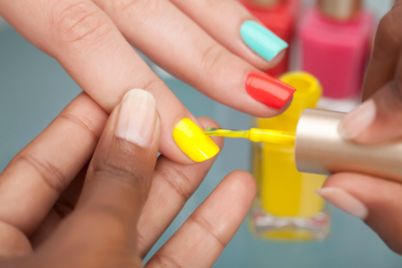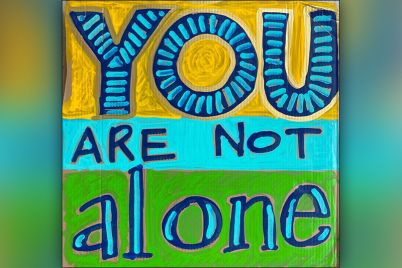‘We really have to set boundaries with verbal aggression within our own communities. And that is about finding ways to have safe spaces to talk it out,’ said Dr. Brittany Peters, clinical director and owner of Center for Wellness & Clinical Development, LLC.
BY J.A. JONES, Staff Writer
ST. PETERSBURG — Dr. Brittany Peters is the clinical director and owner of Center for Wellness & Clinical Development, LLC. A licensed clinical social worker (LCSW) and a qualified supervisor for clinical social, she is also certified as a master’s level addiction professional.
With over 13 years of experience in community mental health as a clinician, advocate, consultant, and clinical director, Peters teaches social work courses for two major universities.
Recently, she offered an overview of the data on state and county mental health practitioners, and the numbers were grim. According to the website County Health Rankings, with a total of 2,210 licensed mental health professionals, Pinellas has a ratio of 440 people to every one mental health professional. You read that right: there is one licensed mental health professional for every 440 people living in the county.
And Pinellas is one of the better counties in the state, with Manatee County having a ratio of 870:1, Hernando 1,140:1, and Sumter County’s ratio is 2,210:1. At the very bottom of the list is Lafayette County, with one mental health professional for the entire county of 8,480 residents.
“The need far exceeds our capacity; we don’t have enough clinicians in Pinellas County. We’re really at a point where we have to use allies to support people’s mental health,” Peters noted. Allies, she added, could be pastors and other leaders in the community or mindfulness practitioners such as Clayton Sizemore’s Mindful Movement Florida.
But, she added, those allies in the community, who are not trained and professionally licensed, need to receive some basic mental health training. For this, Peters recommends Mental Health First Aid (MHFA) training to help support the need.
The program is managed, operated, and disseminated by the National Council for Mental Wellbeing (NCMW), which has trained more than 2.6 million people across the country in Mental Health First Aid. The evidence-based training program teaches citizens to identify, understand, and respond to signs of mental health and substance abuse issues.
The NCMW website lists MHFA training learning objectives, including:
- Knowing the common signs and symptoms of mental health issues
- Knowing the common signs and symptoms of substance use issues
- Learning how to interact with a person when they’re in a crisis
- Learning how to connect a person with professional help
- Additional topics include trauma, substance use, and self-care
Peters relayed the importance of this training for anyone in contact with people suffering from mental health challenges or who are caring for others who may be experiencing overwhelming stress.
“You’re not learning how to assess someone for mental health,” she added. “You’re just learning how to ask what do you need; do I need to call the suicide hotline, or do I need to call law enforcement right now? Do I need to support you and schedule an appointment with a therapist? What can I do to get you there?”
“Many of us are living with these individuals; it may be mild mental health [challenges], or it could be severe. But we want to be able to have some skills to not respond in a way that could trigger someone. You want the whole community responsive in a way that says, ‘We understand what you’re going through. How can we walk next to you as we get you to the help that you need?’”
The practitioner also said recognizing when behavior is unhealthy is key. “We have to stop normalizing: ‘that is just how [insert name] is.’ We see that a lot where someone is an agitator of conflict within the family. We observe it, yet no one steps in to intervene and say this is not okay.”
Peters added that ending that type of conflict in our homes may mean establishing boundaries for our loved ones who are agitators, including saying, “You can’t come back here if this is what you’re going to do.” This lets the family agitator know they have a decision to make because if they don’t change their behavior, family members won’t want them around.
She noted that this is especially important to do with those who are violent, both physically and verbally.
“We really have to set boundaries with verbal aggression within our own communities. And that is about finding ways to have safe spaces to talk it out. Because verbal aggression is just as bad, and sometimes those verbal assaults are what contribute to people coming back with guns and saying, ‘I’m gonna handle this in a different way.’”
Peters also noted that families find themselves minimizing and even laughing at mental health issues or verbal aggression within families as a coping mechanism.
“But imagine how that feels to the individual who is a target of that behavior? We have to show a display of taking it seriously, like, I’m not going to laugh at you being bullied by the uncle or auntie. I’m gonna say, ‘Hey, that doesn’t make me feel good to see you do that to someone else.’”
Families in need of support for mental illness in their family can contact National Alliance on Mental Illness/NAMI Pinellas’ Family Support Group, a peer-led support group for family members, caregivers, and loved ones of individuals living with mental illness. There is no cost, and groups meet monthly. Trained NAMI family member facilitators encourage all to participate. For more information, contact Director of Programs Jo Dee Nicosia, or call 727-826-0807.








